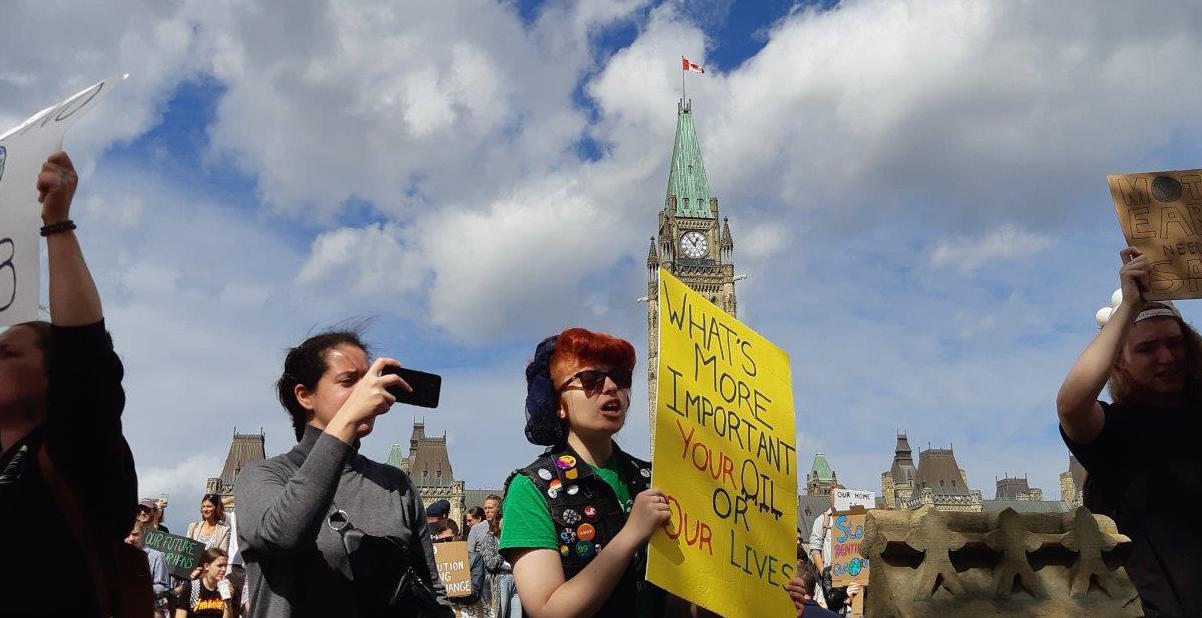On September 27, a day millions when of people around the world marched to demand action on climate change, I joined the climate strike in Ottawa with about 20,000 others. It was a heartening exercise, made even more special by the presence of so many young people.
Facebook posts
That evening I placed a few photos from the strike on my Facebook page accompanied by a brief message that ended: “The marchers were passionate but considerate, the message was stirring, and the weather was great. Let’s work on this, together.”
That post was shared by someone who I had met at a family reunion in Western Canada a couple of years back. It drew the following response on her Facebook page from another distant relative:
“How many of those people walked to get there?”
I was reluctant to engage in a negative way with someone in my extended family, even though I had never met him. Finally, I responded by saying, “We took the bus? Is that okay?”
His reply was, “No it runs on fossil fuel.”
No right to protest
According to this claim, no one who uses fossil fuels has a right to participate in an event which calls for phasing out those fuels to prevent a warming of the planet, which the world’s preeminent climate scientists warn will lead to calamity.
The logical conclusion to this argument is that no one can make the case for taking action to mitigate climate change because we all use fossil fuels in one manner or another. The underlying message is that anyone who advocates for phasing out fossil fuels is a hypocrite.
Disingenuous argument
Sorry, but this is simply a disingenuous argument. It is countered, in another context, by a letter to the editor in the Boston Globe. The writer says: “To say it is hypocritical to divest while still using fossil fuels is equivalent to telling parents they must remove their children from class while advocating for better schools.”
We can cite Canadian examples as well, including the campaign against apartheid. In the 1970s and 1980s there was an organized attempt to have Canadian banks and other business divest from South Africa. The response from some quarters was to say that anyone with money in banks was a hypocrite to ask that those same banks divest.
The point, of course, was that people wanted their banks to assist in the effort to put pressure on a racist system of government. And it worked. When enough popular support had been mobilized, even prime minister Brian Mulroney took up the anti-apartheid cause, and he still dines out on that today.
Individual vs. collective
Another disingenuous aspect to the “you are hypocrites” argument is that it places all of the responsibility for action to mitigate climate change upon individuals rather than the collective. Many of us have had conversations about what we can do as individuals: driving less, flying less, adding more insulation to our attics, composting in our kitchens, and taking shorter showers.
These are all worthwhile activities, but actions by individuals cannot achieve the deep and systemic changes that must occur. We need governments and businesses, but especially governments, to act. That can take the form of setting a price on carbon and setting limits on greenhouse gas emissions, two of the things that are being talked about in the current Canadian election campaign.
Invented in boardrooms
I suspect the “you are hypocrites” argument was invented by sharp people in corporate boardrooms and likely it was focus-tested to gauge its effectiveness. Then it was spread by a network of think-tanks to university classrooms, complicit journalists and unsuspecting individuals, among them perhaps my distant relative.
This is an argument that is meant to shame and embarrass people, to paralyze them and to prevent them from acting. But it is too late in the game for that. We’re going to keep marching and demanding more of our governments. But I believe also that we are moving toward a time when we can work together on a climate threat that involves all of us.
Dennis Gruending is an Ottawa-based author and a former member of Parliament. His latest book is Speeches That Changed Canada.
Image: Dennis Gruending




